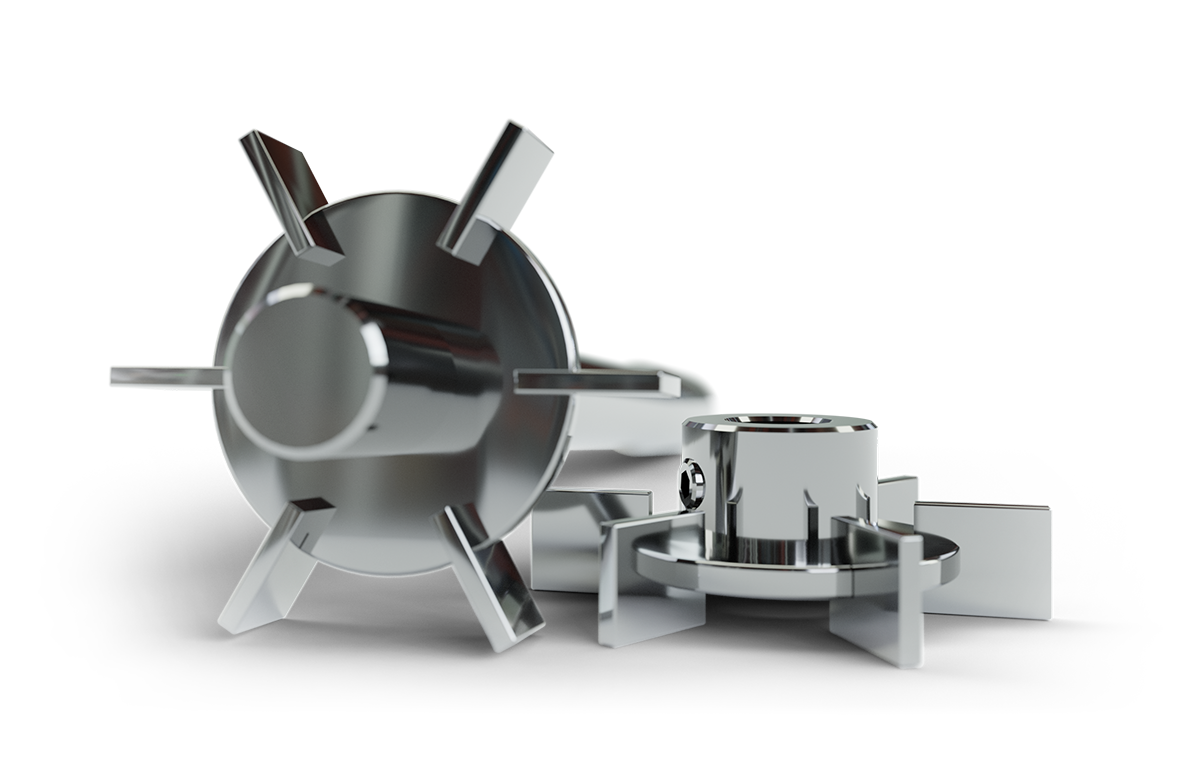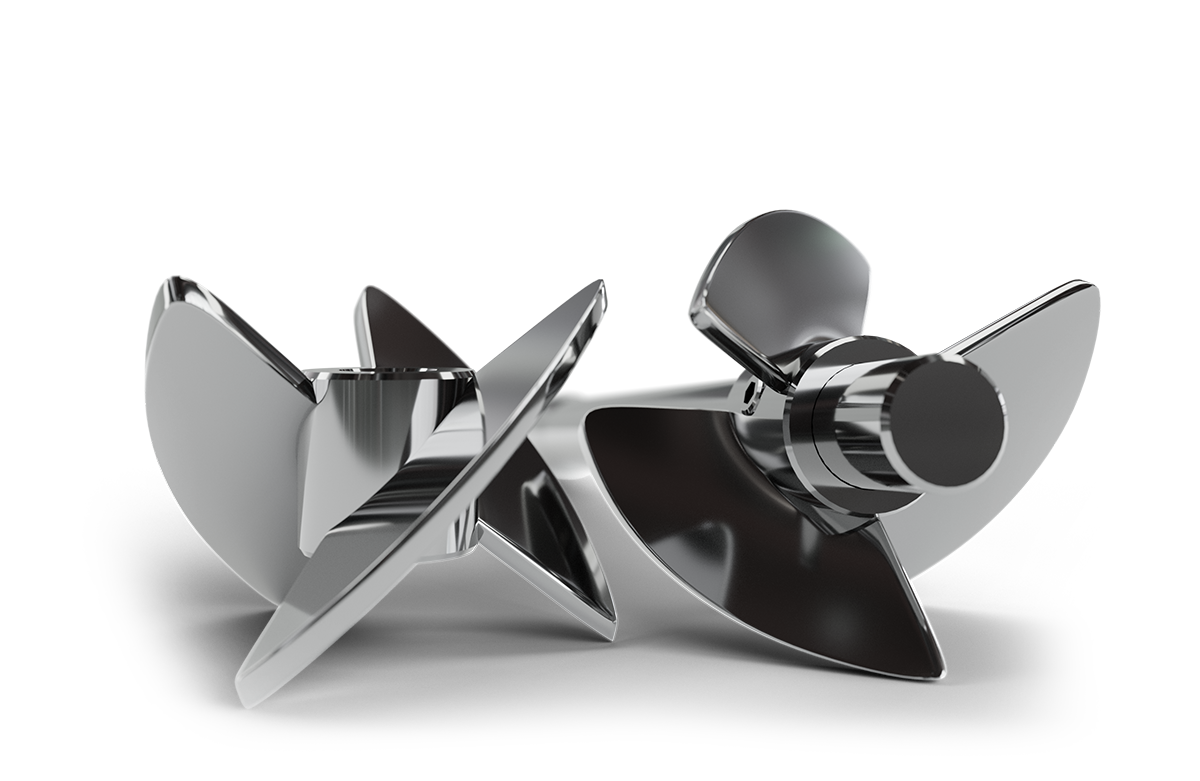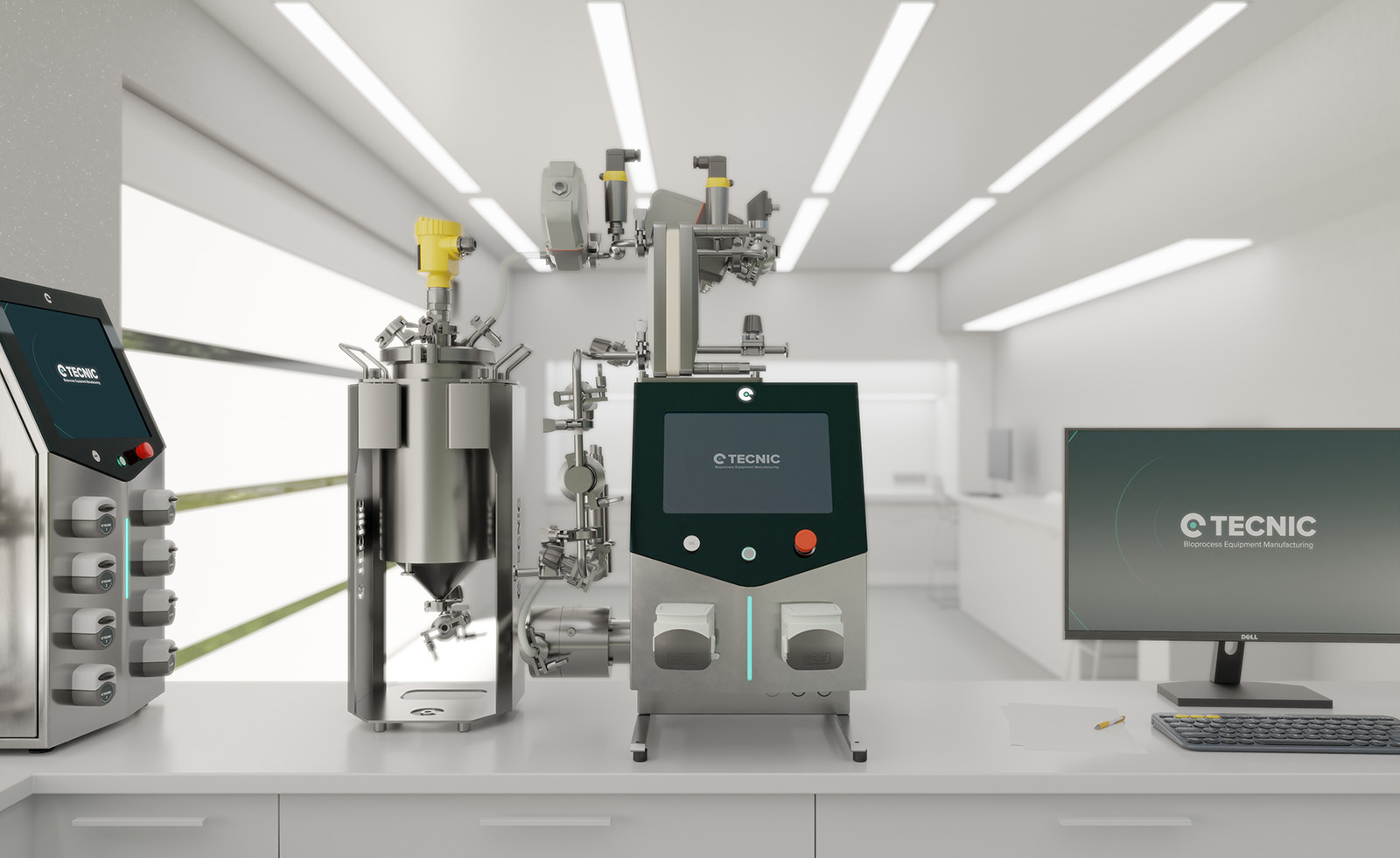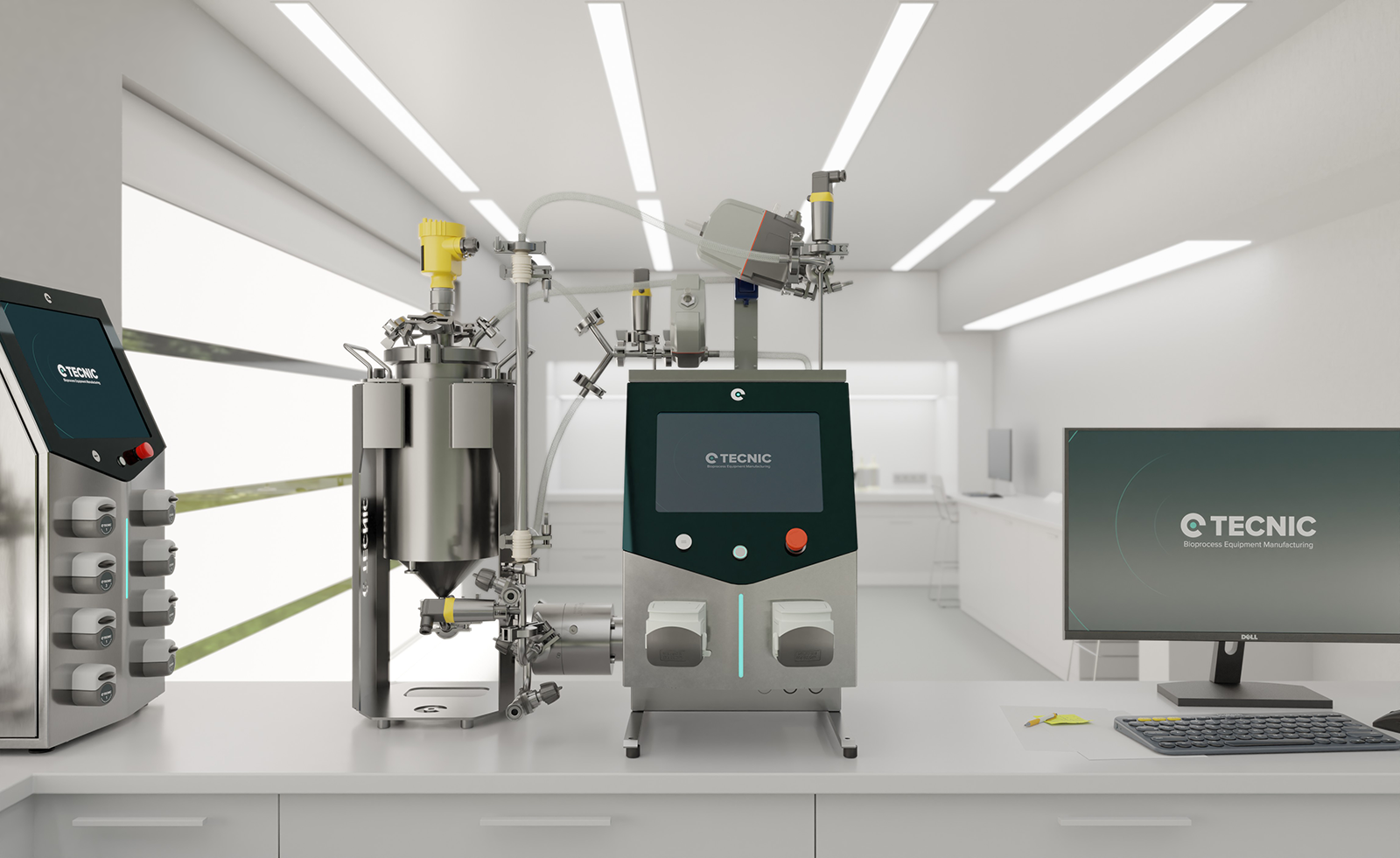TECNIC's solution for revolutionizing Cell Therapy
In the landscape of biotechnology, significant strides are being made in next-generation cell and gene therapies (CGTs) ⇀, presenting a groundbreaking avenue for unprecedented curative interventions in patients with limited therapeutic options for specific medical conditions by providing personalized and targeted approaches
This new technology, called cell therapy, focuses on the introduction of new, healthy cells into the body with the goal of replacing diseased or damaged ones, modulating the function of the patient’s cells through the expression of factors, or encompassing the removal of dysfunctional cells using immune cells. The potential of cell therapy to halt and reverse diseases, restore damaged organs, and ultimately cure life-threatening conditions is now a realistic goal for scientists who operate at the forefront of regenerative medicine. However, there are immediate and long-term challenges that can be a problem during the manufacturing processes of these medical therapeutics.
In response, TECNIC upstream scalable cell expansion bioreactors and downstream processing portfolio of technologies play a pivotal role in supporting cell expansion, harvest, wash, and concentration, always helping you achieve the desired production from scales of Clinical Research to Pilot and Industrial Bioprocesses ⇀.
What is cell therapy?
From the perspective of life development, diseases in a living body usually indicate problems in the basic unit of its life: cells. In this sense, cell therapy is a broad term that encompasses the use and differentiation of various cell types, typically multipotent cells, as a therapeutic application that provides remarkable outcomes for patients in need of new treatment options. The primary aim of this type of biotherapy is to develop medicinal products and therapeutic strategies to repair and stimulate damaged tissue and organs or, furthermore, cure diseases and conditions such as lung diseases, neurodegenerative disorders, autoimmune diseases and cancers like adult-onset leukaemia, Hodgkin's lymphoma, or acute myeloblastic leukaemia (AML)
A prime example of its application is the use of induced pluripotent stem cells (iPSC cells) to provide an unlimited T cell source for CAR T cell therapy development, which involves reprogramming the patient’s T-cells to target and destroy specific cancer antigens. This combination of iPSC and CAR technologies provides an extraordinary opportunity to oncology and greatly accelerates the development of cell-based therapy for cancer patients.
The advantage of this biotherapy is that it can be personalized to cure specific individual pathologies. Also, following the principle “Primum non nocere” (first do no harm) and taking into consideration that cellular repair occurs naturally in the human body, cellular therapy is considered to be safe, with no or few adverse effects observed in numerous animal and human preclinical and clinical studies.
Cell therapies and the evolving role of personalized medicine
Personalized medicine is an innovative approach to disease prevention and treatment that takes into account differences in how individuals respond to medication in order to provide “the right therapy at the right dose at the right time”. After being approved in medical trials, the advances made in personalized medicine have already led to powerful new discoveries and approved treatments that are tailored to the specific characteristics of individuals.
Within this paradigm, allogenic and autologous cell therapies emerge as promising avenues:
Challenges in cell therapy
Cell therapies are actively being developed and hold great promise to treat a multitude of disease indications. However, there are immediate and long-term challenges to overcome that create obstacles during the manufacturing process of these therapeutics:
Advanced Bioreactors
In response to these challenges, TECNIC has developed automatic bioprocess equipment for both upstream and downstream development. We understand that, unlike traditional biotech manufacture (like mAbs and other biologics), the production and processing of this therapies requires that the cellular material retains the critical quality attributes (CQAs) thought the entire process.
For that reason, TECNIC eLAB® ⇀ , ePILOT® ⇀ and ePROD® ⇀ bioreactors are designed to ensure high-quality and reproducible results to overcome the previously mentioned challenges. We offer the best bioprocess solution for cell therapies, as our equipment is meticulously designed to provide precise control over environmental parameters, optimizing cellular conditions for maximal yield while minimizing resources and time utilization. Furthermore, our equipment is designed with an automatic unit control that includes integrated data analytics systems, which enables you to fine-tune the culture conditions to develop a smooth bioprocess performance.
Tangential Flow Filtration in cell therapy
Most of the research and development bioprocesses of cell and gene therapies (CGTs) has focused on the intensification of the upstream process. Whilst R&D should continue focusing on improving cell density and other cellular expansion needs, the manufacturing bottleneck is inevitably leaning towards the downstream processing. In order to address this need with high specificity and high throughput, our eLAB® TFF ⇀, eLAB® TFF SU ⇀, ePILOT® TFF ⇀ and ePROD® TFF ⇀ offer a solution that can be scaled, automated, fully contained and amenable to process development activities. Whether you are engaged in pioneering research or driving industrial-scale production, enable us to meet your end demand to develop your cell therapies projects.
To ensure that advances in upstream processing are maximized, TECNIC equipment also ensures an effective downstream process development for volume reduction, wash and formulation of the final product. At the same time, the automation of our equipment recipes significantly minimizes the need for manual adjustments, enhancing user performance and reducing labor costs. Furthermore, we enable you to have high protein clearance, high recovery of viable cells with minimal impact on its viability.
Success stories and applications
Explore our complete range of equipment
Our bioreactors are designed for diverse applications, ensuring efficiency and quality. Discover our full range of biotechnology solutions, including Bioreactors, Tangential Flow Filtration systems, and more. Visit our pages for Bioreactors ⇀, Tangential Flow Filtration ⇀, and Contact ⇀ for further information and inquiries.






